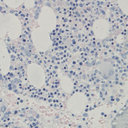Curcumin pretreatment protects against PM2.5‑induced oxidized low‑density lipoprotein‑mediated oxidative stress and inflammation in human microvascular endothelial cells.
Schlüsselwörter
Abstrakt
A previous study demonstrated that particulate matter (≤2.5 µm in diameter; PM2.5) may promote atherosclerosis. However, the underlying mechanisms of PM2.5 in human microvascular endothelial cells (HMEC‑1) remain to be elucidated. It has been reported that inflammation and oxidative stress can be reduced by curcumin, and in the present study, the aim was to investigate the protective effects of curcumin on PM2.5‑induced oxidative stress and inflammatory response in HMEC‑1. HMEC‑1 were stimulated with curcumin and PM2.5. The HMEC‑1 viability and apoptosis were detected by MTT and annexin V‑fluorescein isothiocyanate/propidium iodide assays. The levels of oxidized low‑density lipoprotein (oxLDL), tumor necrosis factor (TNF)‑α and interleukin (IL)‑8 were detected by ELISA. The intracellular reactive oxygen species formation in HMEC‑1 was detected using flow cytometry and 2',7'‑dichlorofluorescin diacetate. Nuclear factor (NF)‑κB, caspase 3 activity and adhesion molecule expression were also investigated. The results suggested that curcumin reduced PM2.5 (300 µg/ml)‑induced cell apoptosis and intracellular caspase 3 activity in HMEC‑1. ELISA analysis demonstrated that curcumin reduced PM2.5‑induced oxLDL, TNF‑α and IL‑8 levels. Curcumin induced NF‑κB, cell adhesion molecule 1 and vascular cell adhesion protein 1 expression. Thus, curcumin treatment may reduce PM2.5‑induced oxidative stress and inflammation in HMEC‑1. In summary, it was indicated that the effects of PM2.5 are associated with oxLDL via the NF‑κB signaling pathway, thereby inducing PM2.5 mediated oxidative and inflammatory responses. The results also suggested that curcumin may be able to reduce the oxidative and inflammatory effects of PM2.5 in HMEC‑1.



